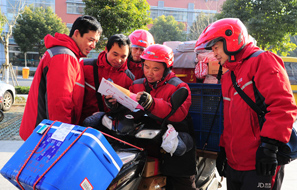Li vows quick action on reform
Premier targets public finance, taxation and social concerns
Premier Li Keqiang pledged on Wednesday that quick action will be taken in economic and social reforms in the first year following the national leadership transition in March.
Li said at an executive meeting of the State Council that a general plan for the reform of public finance and taxation, and a medium- to long-term program for urbanization should be completed as soon as possible.
But details of the reform efforts were not revealed in the cabinet communiqué.
Economists cite disparity between the government's social commitments and tax income. They also point to the imbalance between the fiscal ambitions of local governments and their revenue constraints.
Reform of the public finances and tax is difficult, they said.
Urbanization and reform will provide a combined impetus for sustainable economic growth, Li has consistently said.
Yet so far, there has not been an overall outline for what will be the largest urbanization process in world history.
Zhang Ping, former director of National Development and Reform Commission, said earlier this month that the outline might come out in the first half of this year and is expected to change the hukou (household registration) system.
In social reforms, Li vowed to boost just and fair recruitment by government offices and all State institutions, so that social mobility can be enhanced.
Ge Daoshun, a social policy expert at the Chinese Academy of Social Sciences, said the government's goal to strengthen employment fairness reveals that unfairness exists in the recruitment of government agencies, affiliated institutions and State-owned enterprises.
At the same time, the executive meeting said the government will prioritize improving the standard of living.
The country will improve its social security system and focus the government work on poverty alleviation, it added.
The government will also strengthen efforts to guarantee food safety and to deal with pollution.
Li urged a detailed plan to tackle the country's excess capacity should be carried out, and each related department should be held accountable for specific issues.
The government should also take effective measures to provide better access for private investors to enter the various sectors formerly under the State monopoly.
Li also said during the meeting that the related departments should roll out new measures in promoting the liberalization of the interest and exchange rates, and develop a multi-faceted capital market.
Contact the writer at [email protected]
- Reform means maintaining stability
- Reform the enterprise before the price
- Chinese premier urges deepening reform for anti-corruption
- Tax distribution system reform is necessary
- Reform the administration approval system
- The path economic reform should take
- Reforms 'pivotal to growth'
- Reform urged for small-sum loan sector
- Reform of medical care insurance system necessary
- China's medical robots take on foreign rivals
- Zhejiang halts live poultry trade amid bird flu concerns
- Public security departments facilitate migrants' ID card renewal
- China plans 50 billion yuan of investment in rural methane projects
- 5.6-magnitude quake hits Taiwan; no casualties reported

























